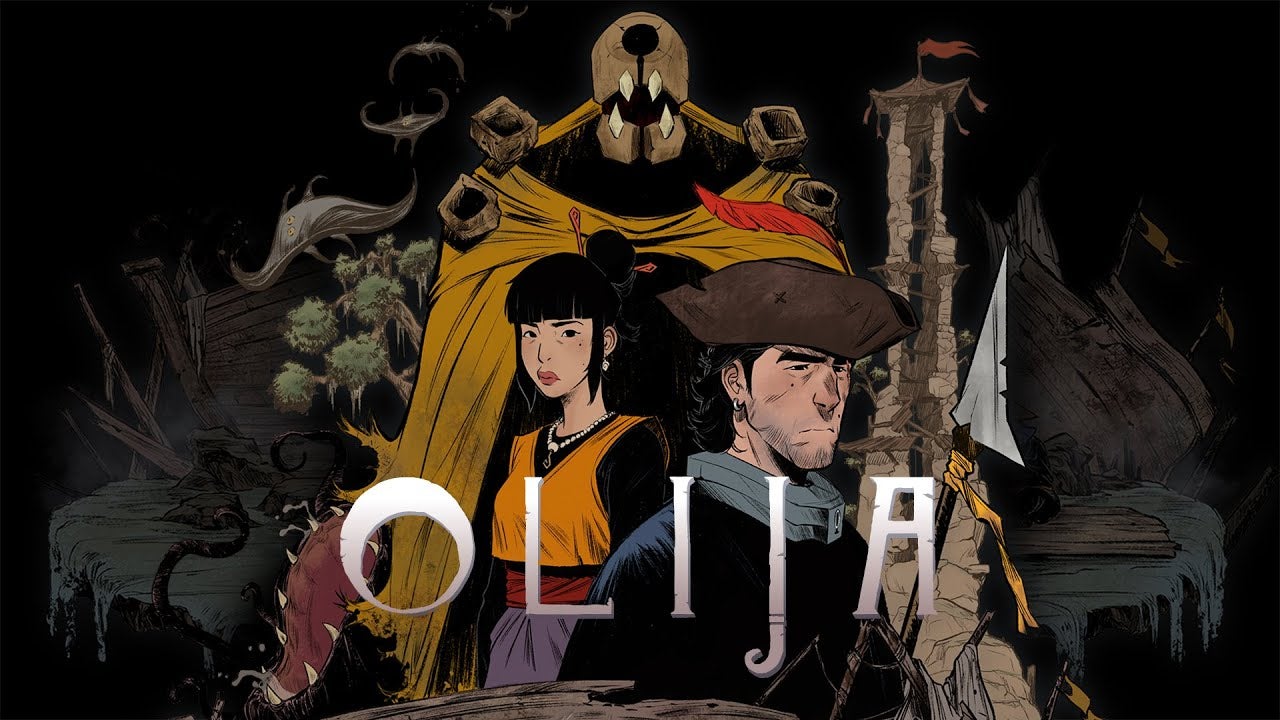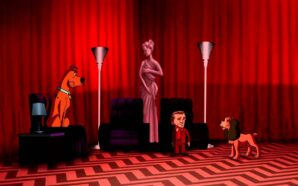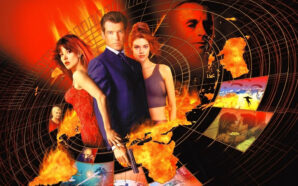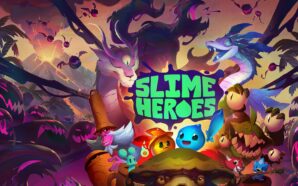OLIJA REVIEW (PLAYSTATION 4)
Developer: Skeleton Crew Studio
Publisher: Devolver Digital
Reviewed by: Lee Chesnalavage
Shipwrecked by a colossal whale, Lord Faraday finds himself stranded in the archipelago of Terraphage. After finding a magical compass revealing the location of the Harpoon of Legend, Faraday is chased out of the temple Indiana Jones-style by a giant boulder composed of sentient blobs of gooey black creatures. Faraday only escapes certain death due to the Boatman, who pulls Faraday out of the sea and into his small vessel. The Boatman explains that anyone who washes up in Terraphage is trapped forever but being a sea-faring adventurer desperate to get home, Faraday sets out on a mission to be the first to ever escape.
Inspired by swashbuckling tales and ancient Japanese culture, Olija is a 2D action platformer with an emphasis on using the legendary Harpoon to indulge in ranged combat and puzzle-solving. You’re always encouraged to throw the harpoon and you’re rewarded with health, ammunition and, most importantly of all, secret areas. Faraday’s main objective is to collect three Shadow Gate keys but to find them he must travel to the various islands and relinquish control from the Rottenwood Clan. Led by the skull-faced Yellow Cloak, the Rottenwood Clan come in the form of enslaved residents, spellcasters, corrupted plant-life and blood-curdling monsters.
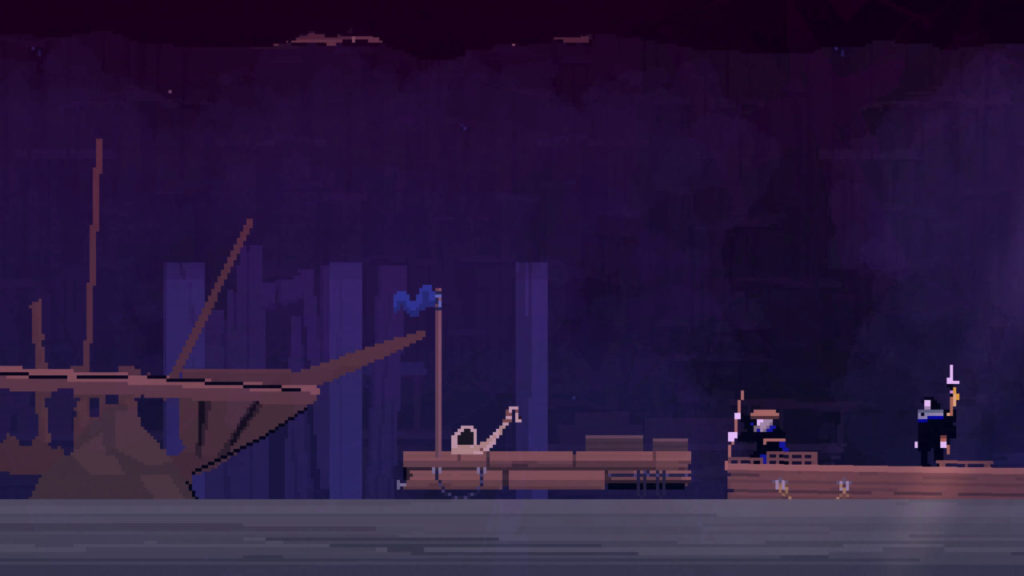
Fighting feels almost effortless too. Simple in its approach, all you’re asked to do is mash a few buttons. Every consecutive hit adds to a combo meter which eventually climaxes in an automated flourish of attacks. Without barely any input you’re transformed into a skilled killing machine. I never got bored of watching Faraday carve through several enemies all at once, and Olija lets you revel in the glory without asking you to actually become a skilled swordsman.
Puzzles aren’t complicated and haven’t been designed to challenge you. The puzzles are environmental and don’t involve any abstract thinking or mathematical preciseness. They’re usually implemented to let you experiment with the Harpoon of Legend, to unlock secret areas, or to add context to the world. In all fairness, I was never able to find all of the collectibles and there was one area I couldn’t figure out how to reach, so it’s likely there might be some puzzle elements that went right over my head. There’s one particular level that I wouldn’t consider a puzzle but it definitely stands out from the crowd because it forces you to play differently, and it was a welcome change of pace that introduced an element of Shakespearean romance.
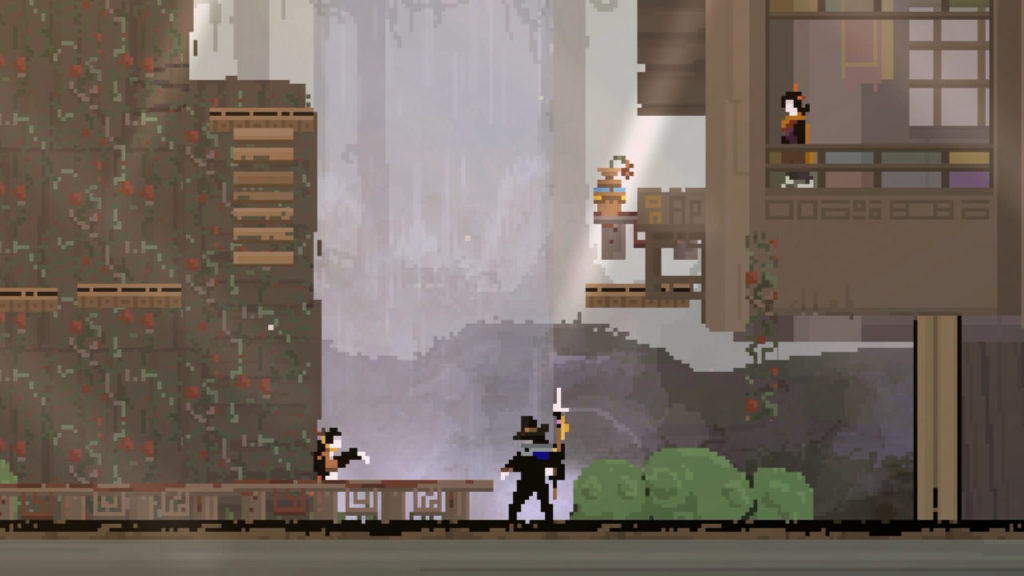
A light-hearted approach to improving your stats is the option to visit the Hatmaker. The Hatmaker will craft you a hat of your choice, each one having its own bonus spec. It’s not a deep customisable system by any stretch of the imagination but it adds an element of fidelity and comic relief (depending on the type of hat, of course). The baseball cap, for example, allows you to steal health from your enemies, and it transforms Faraday into a hipster. Combined with a skateboard and a laptop, he wouldn’t look out-of-place in a Starbucks.
At face value the visuals of Olija may seem basic because, well, they are. For the most part you’re seeing the characters at a distance, so they’re purposefully non-detailed. Even cutscenes where characters are up-close look bold and untextured but there’s something to be said about the choice of style because there’s no mistaking the characters’ actions and emotions. To be able to convey intentions and feelings using such little colour and pixels speaks volumes to the craftmanship involved. In stark contrast of this, character animations are super fluid and almost feel rotoscoped akin to Another World or the 1989 Prince of Persia. Backdrops are more detailed though, and the items you find resemble more traditional pixel-art you’d expect from SNES titles. The creative use of parallax creates depth too, allowing you to bear witness to creepy creatures reacting to your presence, or the silhouettes of swordsmen watching you from afar. Olija’s style also lends itself to some bad-ass scripted events that feel like they’ve been extracted from a martial arts fantasy Manga.
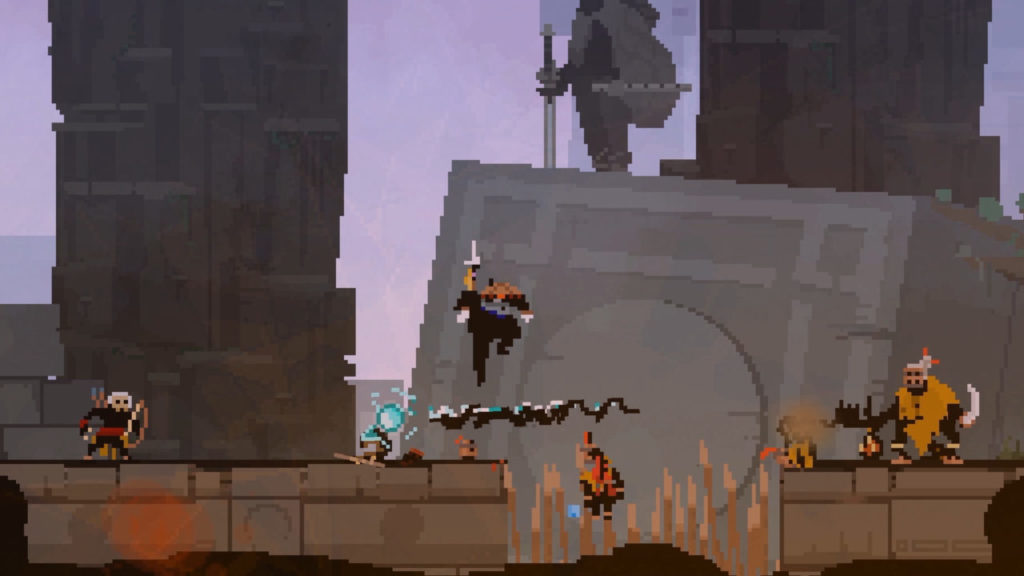
For a game involving a merchant ship, a cursed country and magical weapons I expected a bombastic soundtrack but Olija has minimal sound design that takes advantage of diegetic sound; For the most part all you hear is Faraday walking, chopping down grass, and the clash of the harpoon colliding with stony surfaces. Parts of Faraday’s story gets narrated by the Boatman too, and the silence of the world added an ominous, intruding layer to the narrator’s words. Characters do speak but Olija has no real dialect (not to my understanding anyway) and opts for a Mario-like mumbling that is subtitled. It was never quite clear which characters were speaking as coloured fonts and character names were never used, and as you have to read subtitles it was sometimes too distracting to pay attention to what was happening on-screen at the same time.
I reviewed Olija on PS4 so I can’t speak for the performance on other consoles but Olija crashed on me several times, and every time it was during a loading screen. Luckily, it always picked up the moment before crashing so at least the game was regularly auto-saving in the background. Speaking of loading screens, they are frequent and needlessly lengthy. You will eventually forget they’re even there but when you first start playing you might find it surprising how often you’re forced to stop and wait. I also encountered a few glitches but they weren’t detrimental and aren’t worth discussing.
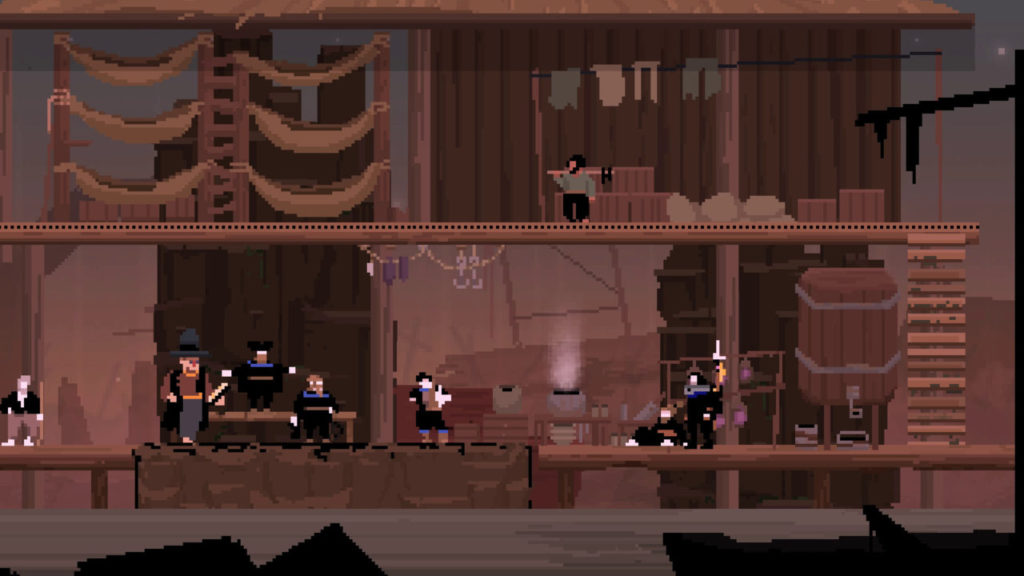
More could have been done to flesh out the bosses. They all have potential to be interesting characters but narratively speaking little focus has been put on them. Maybe some mythology and world-building would have made the battles more impactful. As you tend to stumble into a boss fight without realising it would have been cool to hear spooky tales about them to build up the anticipation of the fight, if nothing else. I was also under the impression that Olija was a martial arts game but combat is simple and lacks complexity. I think its simplicity works in its favour but it would have been better if there was an added level of skill involved.
VERDICT
Should you play it? Yes!
Why… Easy to get to grips with, Olija is a stylised action adventure with some interesting mechanics thanks to the Harpoon of Legend. There are brilliant moments, some scripted and some interactive, that peel back the layers of a poetic romance.
But… It’s fairly short and quick to finish. The map is small and could have been larger, which in turn would have made Olija’s playtime longer. Combat is easy and lacks complexity, so may become derivative after a few hours.
Reviewed on PlayStation 4




